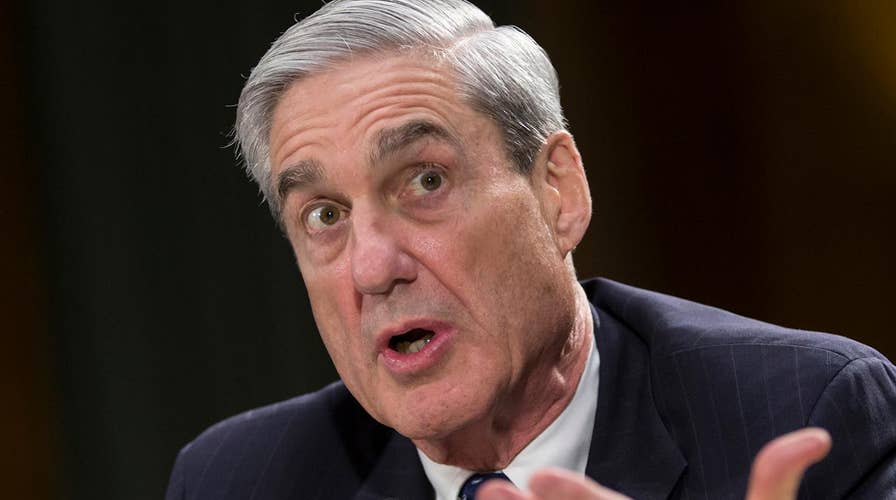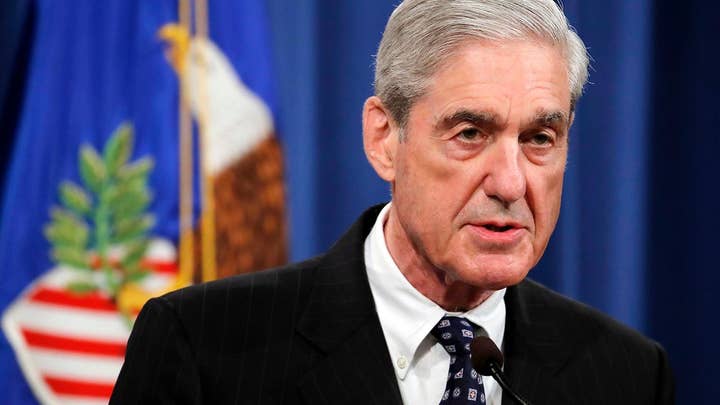Do Democrats or Republicans stand to benefit more from Mueller's hearing?
Democratic political analyst Kelly Hyman and Republican strategist Alex Vogel on what they expect from Robert Mueller's testimony.
It is a sad state of affairs when congressional testimony is required for citizens to understand a report that has been public for over three months, as is the case with the report by former Special Counsel Robert Mueller on his investigation of Russian interference in our 2016 presidential election.
Democratic politicians obviously believe that if the people can only be made privy to the allegedly awful obstructive acts engaged in by President Trump, they will rise up in anger and demand his ouster through impeachment and removal.
I do not believe this is going to happen and I believe most Americans have a fair sense of what the Mueller report found:
First, Trump and his campaign did not criminally conspire or coordinate with Russia or Russians to win the presidential election by hacking computers, running phony Facebook ads, or otherwise interfering with the electoral process.
And second, Trump does not like being investigated and has often reacted in disturbing ways, but he did not clearly obstruct justice and cannot be prosecuted for that anyway.
Many of the president’s unfortunate reactions to the Mueller investigation and earlier investigations overseen by then-FBI Director James Comey were reported on by the media well before the Mueller report was released.
Most citizens probably think that months of impeachment hearings won’t get us to any different conclusions and that impeachment is not worth the trouble.
Be that as it may, when Mueller testifies Wednesday before two House committees, Democrats will focus on allegations of obstruction of justice by Trump dealing with the Russia investigations.
Republicans will focus on the suspicious origins of what became the Mueller investigation.
Democrats have a right to probe President Trump’s angry reaction to being investigated by Mueller. Republicans have the right to seek answers to disturbing questions about how the FBI probe of alleged Trump-Russia collusion was launched and enabled.
I believe that Republicans will make a mistake, however, if they are overly rude to Mueller by bullying him or repeatedly interrupting and cutting off his answers.
Likewise, endless five-minute attack speeches on the evils of Hillary Clinton and those who investigated the Trump campaign will also be subject to the law of diminishing returns.
However, tough, thoughtful questions should be asked, and effective points remain to be raised.
Here are 25 questions I would like Republican House members to ask Mueller.
1. Were there any restrictions placed by former Trump attorneys John Dowd or Ty Cobb on the documentary materials your office was allowed to review?
2. Were any materials denied to you based on executive privilege or attorney-client privilege? If so, what were these materials?
3. Weren’t you allowed to review extensive notes taken by White House Counsel Don McGhan and his chief of staff, Annie Donaldson?
4. Did many of these notes purport to be of conversations between White House Counsel McGhan and President Trump?
5. Wasn’t it an extraordinary level of cooperation for your office to receive unfettered access to such presidential documents?
6. Is it fair to say that you received voluminous records from the White House without undue delay or resistance?
7. Other than the president, was any White House or executive branch official directed by the president or someone acting on his behalf not to be interviewed by your office?
8. To your knowledge, did the president or anyone at the White House direct former White House employees, former executive branch officials, or any other citizens not to be interviewed by your office?
9. Did you in fact interview Don McGhan at length on multiple occasions?
10. Did you also interview Annie Donaldson, Corey Lewandowski, Jeff Sessions and scores of other officials and former officials connected to President Trump, the White House and the executive branch?
11. Is it true that many of these individuals gave information used by you in Volume 2 of your report, which related to alleged obstructive acts?
12. You list, as potential criminal obstruction, the decision by the president to fire former FBI Director James Comey. Are you aware of any case in the history of federal obstruction of justice jurisprudence in which a person was convicted, let alone indicted, for the mere act of firing someone who he had the lawful authority to fire?
13. Your report lists two examples of cases in which a facially lawful act formed at least part of the basis of an obstruction conviction. Do you know of any cases in American jurisprudence in which a facially lawful act alone formed the basis of an obstruction or witness tampering conviction?
14. Are you aware of the Clear Statement Rule, which is based on Supreme Court case law and followed by the Justice Department? Under the rule, according to the Justice Department’s Office of Legal Counsel, “a statute that does not on its face expressly apply to the President may not be applied to the President if doing so would raise a serious separation of powers question.”
15. Do you agree are that your office was bound by the Clear Statement Rule?
16. Do you agree that firing inferior executive branch officers and overseeing federal investigations as chief law enforcement officer are core Article 2 presidential powers under the Constitution?
17. Is there any support whatsoever in case law for your report’s position that removing an inferior officer for a corrupt motive is not covered by the Clear Statement Rule because it is inconsistent with the president’s duty to see that the laws are faithfully executed?
18. Would you agree that this is at least an open question?
19. One of the potential obstructive acts referenced in your report was a purported request by the president’s lawyer of former Trump attorney Michael Cohen to stay on the president’s team when Cohen submitted a false written statement to Congress about the Trump Tower project. Wouldn’t any prosecutor be concerned about credibility issues involved in putting Michael Cohen on the stand?
20 Who has more credibility in your view, Michael Cohen or John Dowd?
21. Even assuming that the president’s lawyer made the statement and that it was improper, do you have any proof that the president’s lawyer was acting on instructions from the president?
22. If it came to your attention that information and/or materials relied on by the FBI to launch or continue the Trump-Russia investigation was bogus, would it concern you?
23. Wouldn’t that be a potential obstruction of your own investigation and a potential obstruction of justice?
24. Why does your report never even mention any credibility problems associated with the launching of the Trump-Russia investigation?
25. Did you even consider looking into this issue and, if not, why not?










































